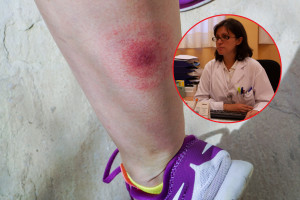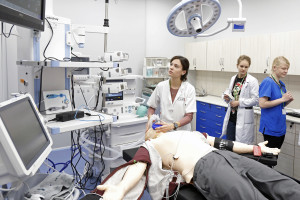PLN 1,900 per month for these illnesses. Specific groups of eligible individuals

Author: prepared by JKB • Source: Rynek Zdrowia • Published: July 11, 2025 7:23 PM
The Social Insurance Institution (ZUS) will grant a disability pension if the reason for the inability to work is health-related. However, diagnosis alone is not enough; specific conditions must be met to receive the benefit, which amounts to nearly 1,900 PLN.
- After indexation, the pension for total incapacity for work amounts to PLN 1,878.91 gross.
- The pension for partial incapacity for work currently amounts to PLN 1,409.18.
- The list of diseases that most often result in the granting of a ZUS pension includes, among others, circulatory system diseases, nervous system diseases and mental disorders.
- The list also includes occupational diseases, the most frequently diagnosed of which include pneumoconiosis, voice impairment, hearing loss, and cancer.
A disability pension is available to individuals deemed to be wholly or partially incapable of performing gainful employment due to their health condition. The last increase in the benefit occurred on March 1, 2025, and therefore amounts to:
- disability pension: PLN 1,878.91 gross.
- pension for partial incapacity for work: PLN 1,409.18 gross.
Alcoholism also entitles you to payment.
Such a pension may be granted by ZUS as a disability pension if:
- the medical examiner determines that alcohol addiction and its effects (e.g. liver cirrhosis, encephalopathy, damage to the nervous system) prevent the person from taking up work,
- the person meets the conditions for insurance seniority.
ZUS points out that this benefit is not available to every addict, but only to those whose illness has caused permanent or long-term incapacity for work.
The right to a pension from ZUS. Specific groups of eligible personsAs ZUS and the Ministry of Family, Labor and Social Policy remind, a disability pension is granted to a person who has been deemed to be wholly or partially incapable of performing gainful employment due to their health condition:
- a person who has lost the ability to perform any work is considered completely incapable of work,
- a person who has lost, to a significant extent, the ability to perform work consistent with his or her qualifications is considered partially incapable of work,
- In the event of a physical impairment that requires permanent or long-term care and assistance from another person to meet basic life needs, the inability to live independently is declared.
These conditions must be met to receive a disability pension:
- the basic condition for obtaining a pension is the occurrence of total or partial incapacity for gainful employment due to a violation of the body's fitness and the lack of prospects for regaining the ability to work after retraining;
- incapacity for work is assessed for a period not longer than 5 years, unless, according to medical knowledge, there are no prospects of regaining the ability to work before the end of that period, in which case incapacity for work is assessed for a period longer than 5 years;
- the right to a training pension is granted to a person who meets the conditions required for granting the pension and receives a decision on the advisability of professional retraining due to the incapacity to work in the previous profession;
- after granting the pension, the pension authority refers the person concerned to the district employment office to undergo training to prepare for a new profession;
- The training pension is granted for a period of 6 months. At the district head's request, this period may be extended to a maximum of 30 months. At the district head's request, the 6-month period may also be shortened;
- the training pension amounts to 75% of the pension calculation basis, but not less than the amount of the lowest pension for partial incapacity for work;
- the amount of the pension for partial incapacity for work - is 75% of the pension for complete incapacity for work;
- a permanent pension is granted to an insured person whose incapacity for work has been recognized as permanent;
- A periodic pension is granted if the incapacity for work is temporary. It is payable for the period specified in the decision of the pension authority. After this period, the insured person may apply to the Social Insurance Institution (ZUS) to extend the pension entitlement for a further period. Any subsequent entitlement to the pension depends on the findings of the ZUS medical examiner or medical board.
The right to a disability pension is granted to an insured person who meets all of the following conditions:
- was deemed unfit for work,
- has the required contributory and non-contributory period, appropriate to the age at which the incapacity for work occurred,
- the incapacity for work arose during periods strictly defined in the Act, e.g. during the period of insurance, employment, receipt of unemployment benefits, receipt of social insurance benefits (sickness or care) or no later than 18 months after the end of these periods.
In turn, the requirement that the incapacity for work must have occurred within the time specified in the Pension Act does not apply to a person who meets all of the following conditions:
- was deemed to be completely incapable of work,
- meets the condition of having the required contributory and non-contributory period and
- has at least 20 years (in the case of a woman) and 25 years (in the case of a man) of contributory and non-contributory periods.
The list of diseases that most often result in the granting of a ZUS pension includes, among others:
- circulatory system diseases;
- diseases of the nervous system;
- respiratory diseases;
- eye diseases;
- mental and behavioral disorders such as schizophrenia or depression;
- diseases of the nervous system;
- work-related malignancies;
- skin diseases;
- chronic diseases of the musculoskeletal system
- infectious and parasitic diseases;
- diseases of the musculoskeletal system, muscles and connective tissue;
In addition, this also applies to occupational diseases, among which the most frequently diagnosed are:
- pneumoconiosis,
- infectious diseases,
- voice damage,
- hearing loss,
- diseases of the peripheral nervous system,
- chronic diseases of the musculoskeletal system,
- skin diseases
- malignant tumors.
Copyrighted material - reprint rules are specified in the regulations .
rynekzdrowia













